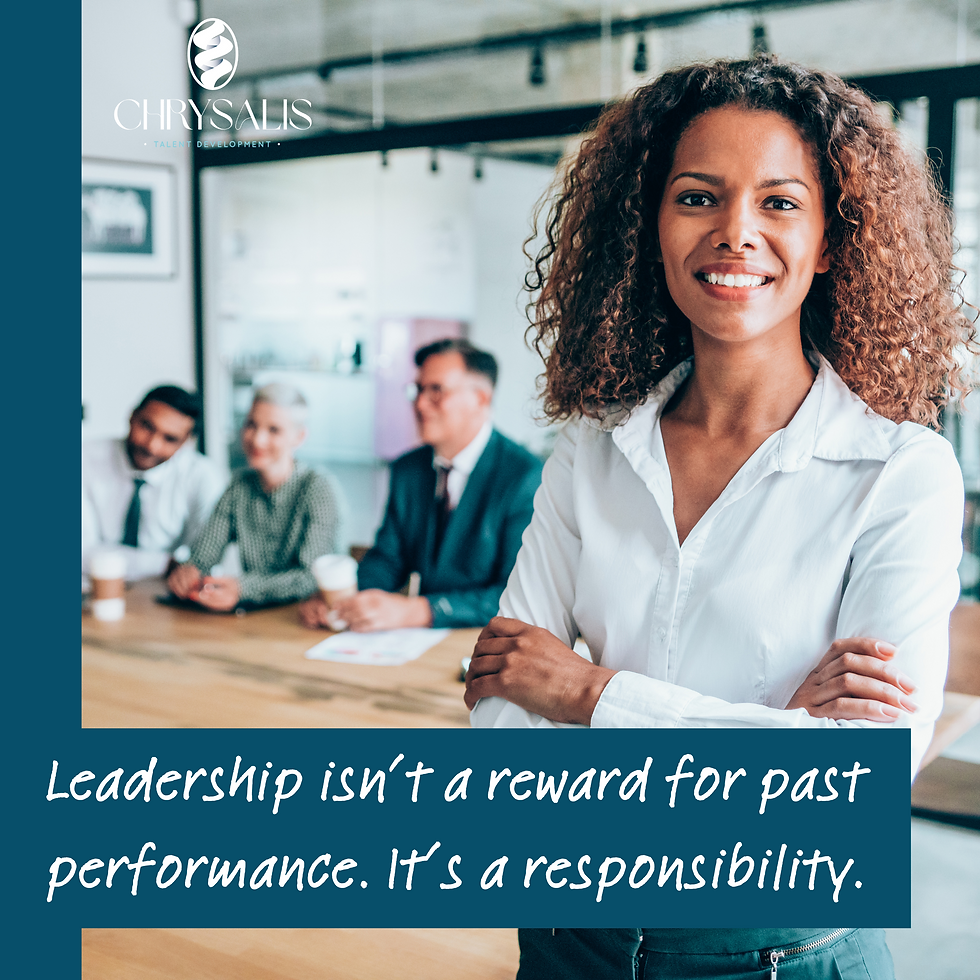Leadership Coaching That Sticks: What It Really Looks Like
- verity858
- Jul 29, 2025
- 2 min read
Leadership coaching can mean different things to different people. Some imagine an executive in a sharp suit having intense, high-powered conversations. Others assume it’s only for people who are struggling. But the truth is, leadership coaching is one of the most effective ways to build confident, capable managers at every level.
And it’s much more practical than people often realise.
What is leadership coaching?
Leadership coaching is a structured, personalised development process that helps managers grow their skills, reflect on their impact, and build the confidence to lead effectively. It’s not therapy, mentoring, or training. It’s a collaborative partnership, focused on helping the coachee reach their full potential through conversation, challenge, and accountability.
Rather than providing all the answers, a coach helps the leader explore their thinking, clarify their goals, and take meaningful action in their day-to-day role.

Who is it for?
Leadership coaching can benefit anyone with responsibility for leading others. It’s especially valuable in transitional moments, such as:
Becoming a first-time manager
Stepping into a senior leadership role
Navigating organisational change
Returning to work after leave or a career break
Managing a challenging team dynamic
It can also support leaders who want to reflect on their style, build new habits, or strengthen relationships with their team and stakeholders.
What does it involve?
Every coaching experience is tailored to the individual, but most follow a similar structure:
A discovery session to explore current challenges and goals
Regular one-to-one sessions (often monthly) to reflect, learn, and plan
Tools, models or frameworks to support understanding
Reflection and action between sessions
A review process to measure progress and identify next steps
Sessions are confidential, future-focused, and grounded in real workplace situations. The aim is to create change that is both meaningful and sustainable.
What kind of topics come up?
Coaching conversations can vary widely, but common themes include:
Leading with confidence after a promotion
Managing difficult conversations or team conflict
Building trust and credibility
Time management and setting healthy boundaries
Developing and delegating to others
Influencing upwards or across the organisation
The best coaching outcomes often emerge from small, focused changes that build momentum over time.

Why does it work?
Leadership can be rewarding, but also isolating. Many managers are promoted based on their technical expertise and then left to figure out the people side on their own.
Coaching gives them space to think, experiment, and grow. It’s an investment not just in the leader, but in the team culture they create. Over time, that leads to better engagement, improved performance, and stronger retention.
Final thought
Good leadership rarely happens by accident. It takes intention, reflection, and practice. Coaching provides the support to make that possible.
If you're looking for structured, supportive leadership coaching for yourself or your team, my Leadership Unlocked programme could be a helpful place to start. Find out more here.




Comments